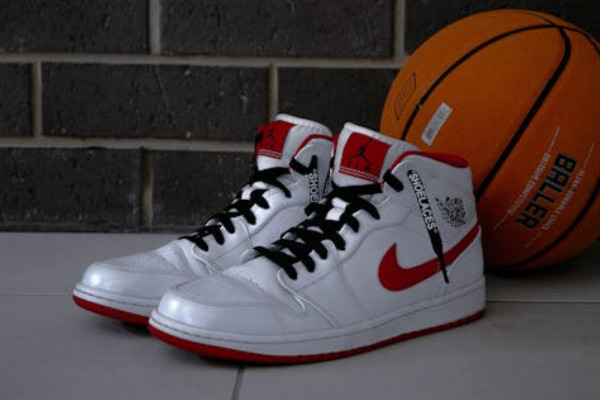The Influence of a Worldwide Brand in the Football World:
Overview:
Nike immediately conjures up visions of elite athletes, innovative footwear, and the recognizable swoosh emblem. Although the company was first established in the US in 1964 under the name Blue Ribbon Sports and changed its name to Nike in 1971, its impact has been felt all over the world. Brazil is one of Nike's most significant markets and one of the nations where the company has unquestionably made its imprint. Here, Nike is more than just a sportswear brand; it is intricately linked to street style, football culture, and patriotism.
This article examines Nike's origins, development, and influence in Brazil, examining how the company has influenced fashion, sports, and culture while managing its achievements.
Brazil's Marketing & Advertising:
Nike's success in Brazil is based on more than simply football uniforms; it's about creating stories. The company has continuously made investments in powerful advertising campaigns that speak to Brazilian ideals of fervor, tenacity, and happiness.
Among Nike's most well-known advertising efforts in Brazil are:
Launched in 2006, "Joga Bonito" (Play Beautiful) is a global campaign that celebrates ingenuity and flair on the field with a distinct Brazilian flavor.
Local athlete endorsements: Nike has collaborated with Brazilian superstars, such as Neymar Jr. and Ronaldo Fenômeno, whose widespread appeal enhances the brand.
Campaigns that reflect the connection of sport and culture in Brazil: Nike frequently links its Brazilian campaigns to music, street football (pelada), and lifestyle.
Nike is now viewed as a part of Brazilian culture rather than just a foreign brand thanks to these initiatives, which have allowed the company to emotionally connect with Brazilians.

Brazilian athletes and Nike:
The list of Nike athletes in Brazil is like a hall of fame:
Neymar, Marta, Ronaldo, Ronaldinho, and a host of others. Through these collaborations, Nike has gained credibility in addition to visibility.
As the face of Nike in the late 1990s and early 2000s, Ronaldo (Fenômeno) personified the speed, strength, and charm that Nike sought to convey. His recognizable Mercurial boots came to represent contemporary football.
Ronaldinho's positive demeanor and skill made him the ideal face for Nike's "Joga Bonito" campaign.
Up until 2020, Neymar, the young football prodigy, represented Nike globally, further linking the brand to Brazilian excellence.
Nike's association with these athletes has solidified its place in the hearts of millions of fans.
Growth Outside of Football:
Nike's most important asset in Brazil is still football, although the brand has expanded into other sports and lifestyle sectors. Brazil has large markets for fitness equipment, basketball, and running. Nike has taken advantage of the growing streetwear market as well. In urban Brazil, sneakers like the Air Max, Air Force 1, and Jordan collaborations have become cultural icons, worn by youth not just for athletic purposes but also as:
Nike has also made investments in grassroots campaigns and community projects. In order to integrate the brand with the values of inclusivity and social responsibility, it has, for instance, sponsored women's sports, local football fields, and urban art initiatives.

Difficulties and Debates:
There have been challenges along the way for Nike in Brazil.
Controversies surrounding contracts: The long-term agreement with the Brazilian Football Confederation (CBF) was criticized for putting marketing ahead of athletics. There have occasionally been claims that Nike has too much control over friendly matches and team schedules.
Competition: Adidas and Puma are still great rivals in Brazil, and the rivalry has been intense because Adidas sponsors important Brazilian teams like Flamengo.
Economic difficulties: Due to Brazil's erratic economy and hefty import duties, Nike products are sometimes pricey, making them inaccessible to many fans.
Neymar's departure: A period came to an end in 2020 when Neymar broke off his partnership with Nike due to disagreements. Given that Neymar had represented Nike Brazil for almost ten years, this was a huge loss.
Nike has remained strong in spite of these obstacles by consistently meeting customer needs and remaining culturally relevant.

Nike's Cultural Impact on Brazil:
In Brazil, Nike is more than simply a sports company; it's a cultural influence. The swoosh is frequently seen in street art, music videos, and youth culture. Nike's integration of fashion, music, and football has allowed them to stay at the forefront of Brazilian pop culture.
For example, advertisements emphasizing diversity, limited edition shoe drops, and partnerships with regional designers have all struck a chord with younger audiences. Additionally, Nike has embraced digital channels, using social media to interact with Brazilian fans directly.

The Future of Nike in Brazil
There are no indications that Nike's influence in Brazil will diminish in the future. With a greater emphasis on women's sports, sustainability, and online shopping, the company is still innovating. Brazil continues to be crucial to Nike's global goals as one of the biggest consumer markets in Latin America.
The ongoing collaboration with the Seleção guarantees Nike's prominence at important international competitions such as the Copa América and FIFA World Cup. In addition, its foray into lifestyle markets establishes it as a mainstay of Brazilian fashion and culture rather than just a sports brand.
The story of Nike in Brazil is a potent illustration of how a multinational corporation can become ingrained in a country's culture. Nike became more than just a foreign corporation by identifying with football, which is important to Brazilian culture; it became a part of Brazil's sporting past. Nike has been there at every stage, from Neymar's incredible skills to Ronaldo's iconic goals.
Nike's empire in Brazil has been established through effective marketing, solid athlete connections, and cultural blending. Even though there are still issues, its impact cannot be denied. Nike has succeeded in putting itself at the forefront of football in a nation where it is vital, and by doing so, it has earned a place in the hearts of millions of Brazilians.
